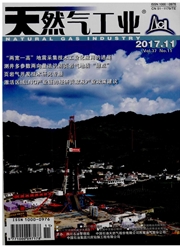

 中文摘要:
中文摘要:
持续低油价严重冲击了我国的油气工业体系,同时也对国家能源安全造成了重大影响,为确保我国油气工业体系的健康发展、寻求应对措施,从分析现阶段低油价的起因入手,以国际能源机构及政府官方披露的数据为依据,对全球油气主要生产国近年油气发展情况、能源政策和未来发展趋势进行了研究。结果发现,某超级大国的油气政策是造成全球油价低位运行的主要原因之一。预计2020年、2030年中国的石油消费量将分别达到6.0×10^8t和6.8×10^8t、天然气消费量将分别达到3 300×10^8m^3和5 200×10^8m^3。为减少中国的油气对外依存度,需保持对油气行业的上游投资,加大科技攻关力度,确保油气生产系统的平稳运行。从中国国家能源战略安全的角度出发,提出了以下对策:①目前需确保我国石油2×10^8t的年产量“底线”,国内天然气年产量在2030年力争达到2 700×10^8m^3左右,以此作为我国长远的天然气产量“底线”;②谋划石油工业上游业务的长期发展,确保油气风险勘探投资、低渗透致密油气藏及页岩油气藏开发技术攻关试验区建设、科技攻关创新等“三个不能停”;③中石油、中石化、中海油需在逆境中求得改革发展,借助“一带一路”的契机,打造国际化技术服务公司;④推进新能源业务,谋划从油公司向综合性能源公司的转变升级。
 英文摘要:
英文摘要:
The global continuous low oil prices have a significant impact on China's petroleum industry system and the national energy security. This paper aims to find solutions in order to guarantee the smooth development of China's petroleum industry system and its survival in such a severe environment, First, the origins of sustained low oil prices were analyzed. Then, based on those published data from IEA, government and some other authorities, this study focused on the development status, energy policies and the future develop- ing trend of those main oil & gas producing countries. Investigations show that the low-price running is primarily contributed to the so- called oil and gas policies in a certain large country. It is predicted that national petroleum consumption will reach up to 6.0×10^8 t (oil) & 3 300×10^8 m^3 (gas) in 2020 and 6.8×10^8 t (oil) & 5 200×10^8 m^3 (gas) in 2030. For reducing the degree of dependence on foreign oil and gas, the investment in the upstream of petroleum industry should be maintained and scientific research should be intensified to ensure the smooth operation of the oil and gas production system. Considering China's national energy security strategy, the following suggestions were proposed herein. First, ensure that in China the yearly oil output reaches 2×10^8 t, while natural gas yield will be expected to be up to 2 700×10^8 m^3 in 2030, both of which should become the "bottom line" in the long term. Second, focus on the planning of upstream business with insistence on risk exploration investment, scientific and technological innovation and pilot area construction especially for low-permeability tight oil & gas, shale oil & gas reservoir development techniques. Third, encourage the in-depth reform and further growth especially in the three major state-owned oil & gas companies under adverse situations, and create more companies competent to offer overseas technical services by taking the opportunity of the "One Belt and One Road" pol
 同期刊论文项目
同期刊论文项目
 同项目期刊论文
同项目期刊论文
 期刊信息
期刊信息
